A Comparative Study Using Patient-Reported Experience Measures (PREMs) in Prenatal Screening Among Pregnant Women in Canada [Secondary data analysis]
Annals of Family Medicine
NOVEMBER 20, 2024
Context The non-invasive prenatal screening (NIPS) has higher sensitivity and specificity in detecting trisomy 21, 18 or 13 than standard care screening, thereby reducing the need for more invasive confirmatory tests that can result in pregnancy loss. Population Studied Pregnant women aged 19 and older.

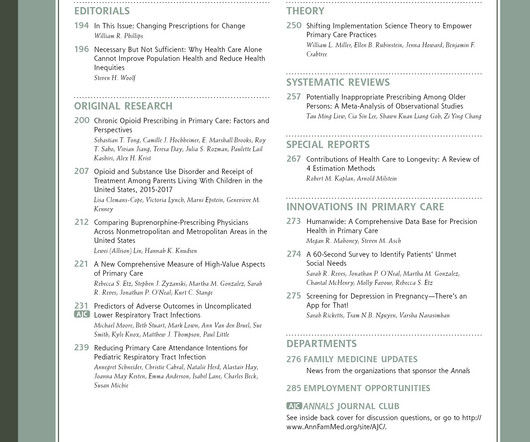
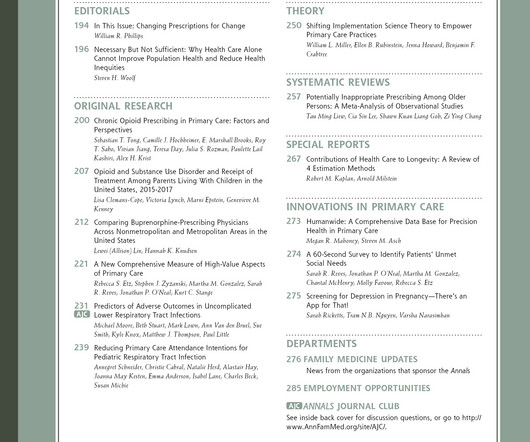
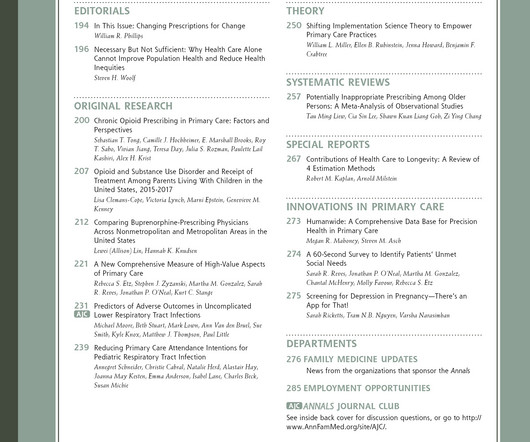
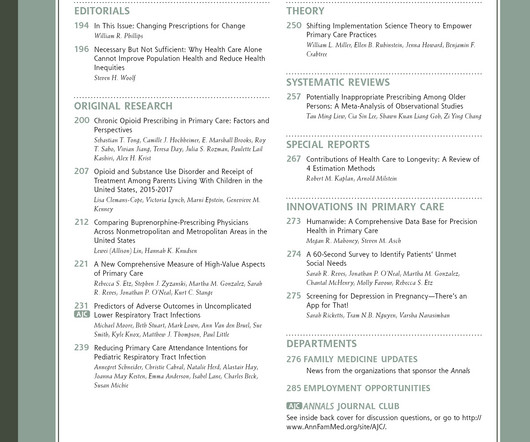

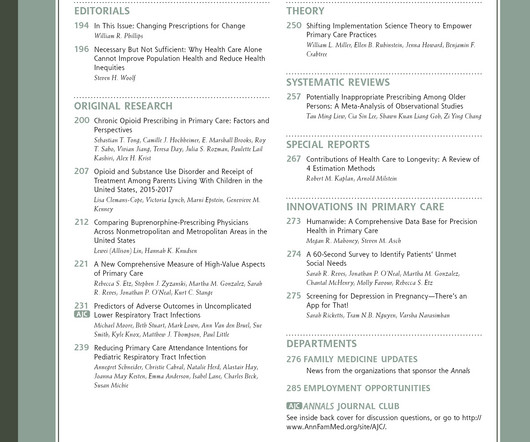

















Let's personalize your content